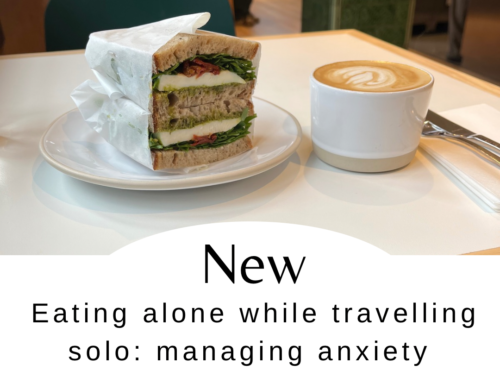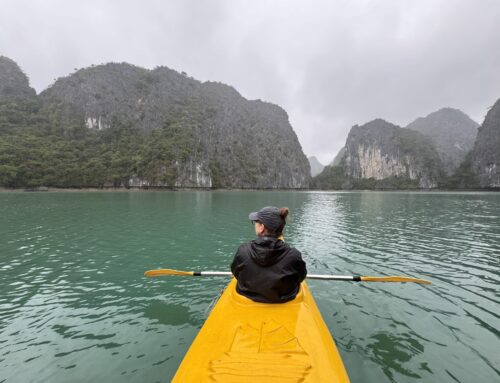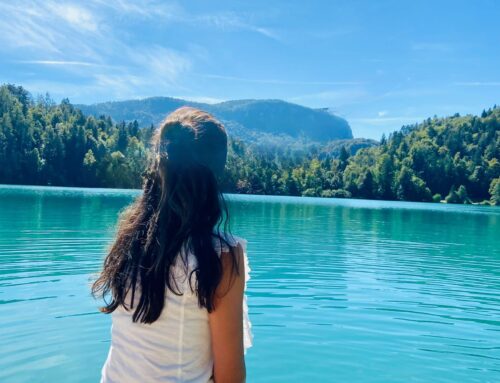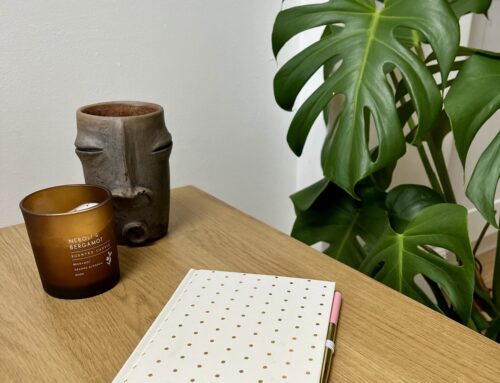Dr Charlotte Russell, Clinical Psychologist & Founder
For most introverts spending time alone is not a concern, and many of us feel very comfortable in our own company. This makes solo travel potentially appealing to us as introverts; it provides the opportunity to build our relationship with ourselves, to experience the world on our own terms and at our own pace. However as an introvert we may experience specific challenges when travelling alone. In this guide I’m going to talk you through these challenges and provide on getting the most out of solo travel as an introvert.
What is introversion?
Introversion is a personality trait, which means that it is a characteristic that is part of who you are. Personality traits like introversion tend to be relatively stable throughout our lives.
Being introverted means that you tend to find social interaction draining. This is the opposite of extroverts who can often find social situations energising. The crucial thing to remember is that this does not mean introverts do not enjoy social situations. It just means that they have a battery for social interaction that can drain over time. This is not a problem if we understand this and can find activities that help to recharge our social batteries. For many introverts this includes time alone, creative tasks and highly focused tasks such as reading or writing.
Many introverts have particular strengths in being thoughtful and considered. Introverts tend to think carefully about how they approach tasks and are thoughtful and sensitive when interacting with others. These are brilliant strengths that are often undervalued in our society. To read more about this I’d highly recommend the book Quiet by Susan Cain
It is worth saying that introversion and extroversion is a spectrum. This means that most people will have a tendency towards being introverted or extroverted, and only a very small percentage will be towards the extreme edges of the scale. I wrote more about this in Travel & Personality: An Introduction by a Clinical Psychologist. If you are curious about your level of introversion and personality type, I’d recommend taking the test on 16Personalities, which is based on the Myers-Briggs Type Inventory.
Solo travel tips for introverts
Understanding our own unique characteristics can help us to get the most from our travels. In the following sections I’ll provide some points to help you think about what might work for you.
Doing what is right for you
We are constantly bombarded with messages about what we should be doing and how we should be doing it. Social media and society at large creates pressures and expectations about what is ‘normal’ and desirable. It is crucially important to be able to let go of these messages when they are unhelpful for you. Only you can decide what matters to you and what kinds of experiences you will enjoy.
The biggest example of this when it comes to solo travel is the expectation that you want or need to make a lot of friends when you travel. Sure making new friends is one reason that people travel solo, but it is certainly not the only reason to. You decide your own reasons for travelling solo and what is important to you. It is totally fine if these differ from the ‘norm’ or thee reasons that other people travel.
Finding what energises you
Typically introverts are energised by activities that are creative or gently keep their attention. Common activities include reading, writing, gardening, hiking, crafts, listening to podcasts, visiting museums and exploring. The good news is that solo travel provides lots of opportunities for exploring and many introverts will find this very energising and good for the soul!
But what about those activities that might be a little out of your comfort zone? Concerts, parties and or even adrenaline-fuelled activities. Well, even the most highly introverted people can if it is something that you really want to do. We can do these things if we have time to recharge and we know what activities may energise us. The important thing is to make sure you have downtime before and after the activities that will stretch you.
For me as someone who is highly introverted, I find that writing and creative work is very energising for me. I say this whilst typing in a lovely café, so I practise what I preach here. However, I don’t tend to take my laptop and write when I’m travelling. I actually prefer to take my phone and take beautiful pictures. I also make some notes in my phone if I am inspired by something. I use my travel experiences to inspire me for when I do sit down to write. This serves the purpose of helping to ‘fuel’ my writing and staying present and mindful while I am away. I am sharing my story as you might find it useful to inform what might work for you.
Accommodation choices
If you are travelling for a long period of time, think about how you will meet your need for time on your own to recharge. Sharing dorms each night may not be right for you. Consider your options and what might work for you. For example, is possible to upgrade to a private room once a week or week or fortnight? Many people in this situation will feel much more like themselves after even a short amount of alone time. Think of these as ‘pit stops’ to recharge your energy.
Making friends
People who are introverted will not necessarily experience difficulties with making friends. However, when travelling alone you may be faced with lots of opportunities to meet other people. If you don’t have a huge social battery, this can feel overwhelming. It may also be difficult if new-found friends want to spend a lot of time together.
Communication is key here. If you move away from new-found friends or keep your distance, others may assume that you haven’t enjoyed interactions. Have some stock phrases ‘up your sleeve’ so that you can end conversations whilst giving the message that you have enjoyed chatting. Here are a few examples:
“It’s been really nice chatting to you, I’m off to the beach now”
“I really enjoyed dinner with you last night, but I like to do my own thing during the day. Maybe we can catch up later?”
“I’m on a solo trip and it is important to me to spend time alone, so I’m not keen to come on the group trip tomorrow. Maybe the morning after though we could have breakfast and you can tell me about it?”
“I’m not really one for big groups or parties as I like chatting in smaller groups and one to one. I appreciate the invite though and do let me know if you want to go for coffee on a different day”
If you are not sure about whether you want to attend, give yourself time to think about it. It’s always acceptable to say ”Thanks for the invite and I’ll get to back to you”. If you do attend, feel free to leave when you’re ready to.
Managing social anxiety
Introverts aren’t necessarily more socially anxious than more extroverted people. However sometimes as introverts we have internalised the societal messages that being loud and social is ‘better’ somehow. This leads a lot of people to try and interact in a way that is not right for them. This is a trap because if we are trying to meet a standard that isn’t right for us it’s likely that we’re going to come away feeling ‘not good enough’. This can contribute to social anxiety.
If social anxiety gets in the way of interacting with other check out my guide here Travel & talking to strangers: tips for managing social anxiety
Managing loneliness
It is a myth that people who are introverted don’t like socialising, but your preferences may be different to those who are extroverted. You may prefer one on one interactions and you may enjoy deep connections and conversations rather than small talk. So as an introvert you can feel lonely, particularly if you are not getting the kinds of interactions that you prefer.
You may find that you can get on board with small talk if it is with people who you feel a connection to through a shared cause. For me when I solo travelled for the first time, I made connections through the cat charity that I was volunteering for (on a Greek island). This meant that I was meeting lots of people who were also interested in cat welfare. Meeting people in these circles meant that I could easily make small talk about topics that I am interested in ie. Cats and Greece. I don’t remember any moments where I felt awkward, and it was a nice way in to making friends that have lasted to this day!
As well as meeting new friends, it is important to keep in touch with people who you are close to back home. Try to be proactive with this and keep in touch regularly.
It is likely that at some point you will feel lonely or have a bad day. When this happens reassure yourself that this is normal and remember your intention or why you chose to travel.
Navigating cultural differences
People who are highly introverted also tend to be sensitive. This can be a strength when it comes to navigating cultural differences as it can help you to better tune in to differences and to respond appropriately.
However if you are sensitive you may find that you can become overwhelmed by differences if you are not prepared. I actually experienced this myself on my first long haul trip in my mid-twenties. I had travelled a fair bit in Europe and my first trip out of my continent was to Hawaii. I hadn’t expected to find this difficult given there is no language barrier and I felt that I was aware of the US culture through TV shows and films. It sounds really strange to say this, but it was quite a shock to experience just how friendly and talkative our US based friends can be. It was a lot for a highly introverted person from a reserved nation!
Of course once I overcame my initial overwhelm it felt lovely to chat to people. It helped to to learn better ways of closing conversations down though when I’d had enough using the examples in the previous section.
Best places to travel solo as an introvert
I don’t necessarily think there is a right or wrong of where to travel if you are more introverted. The important thing is being aware of potential challenges and knowing how to navigate them. As I described in the previous section, if you are travelling somewhere like the US that is a very friendly and direct nation, it will be important to prepare ways to respond to this in a positive way.
Those of you who are regular readers will know that one of my favourite places is Greece, and in my opinion this is a great place to travel solo. Greek people are very friendly and helpful but not ‘in your face’. I’ve been hosted by countless hotel owners who always seem to get the balance right of being available to chat and advise but never imposing. So if you are looking to travel solo as an introvert then Greece is a good option. Places like Thailand are also very good in this respect.
That said, I’ve also travelled solo in Spain and Italy and didn’t experience any challenges in either. However a couple of friends who have travelled solo have had the experience of occasionally being ignored as a solo traveller in a restaurant, particularly in Italy. This isn’t the case across the board by any means. The best thing to do if this happens is to take your custom elsewhere.
If you are not sure where to travel, why not get some advice on solo travel communities. These are helpful places to get advice from people who have been there and done it. I wrote more about them in my article Why is solo female travel becoming more popular?
Conclusions
Getting the most out of solo travel as an introvert is about knowing yourself and what is important to you on your trip. Think about what your intentions are and plan your trip around this. Make sure you take into account your own needs and preferences and don’t get swayed by what other people think or are doing. Only you know what is right for you.
If meeting new people is important, make sure you are prepared. Have ways of closing conversations down in a positive and friendly way, and don’t feel pressured to take part if you don’t want to. Solo travel is a wonderful opportunity and it is important that you make decisions based on what is right for you.
If you liked this article check out What are the psychological benefits of travelling alone?





